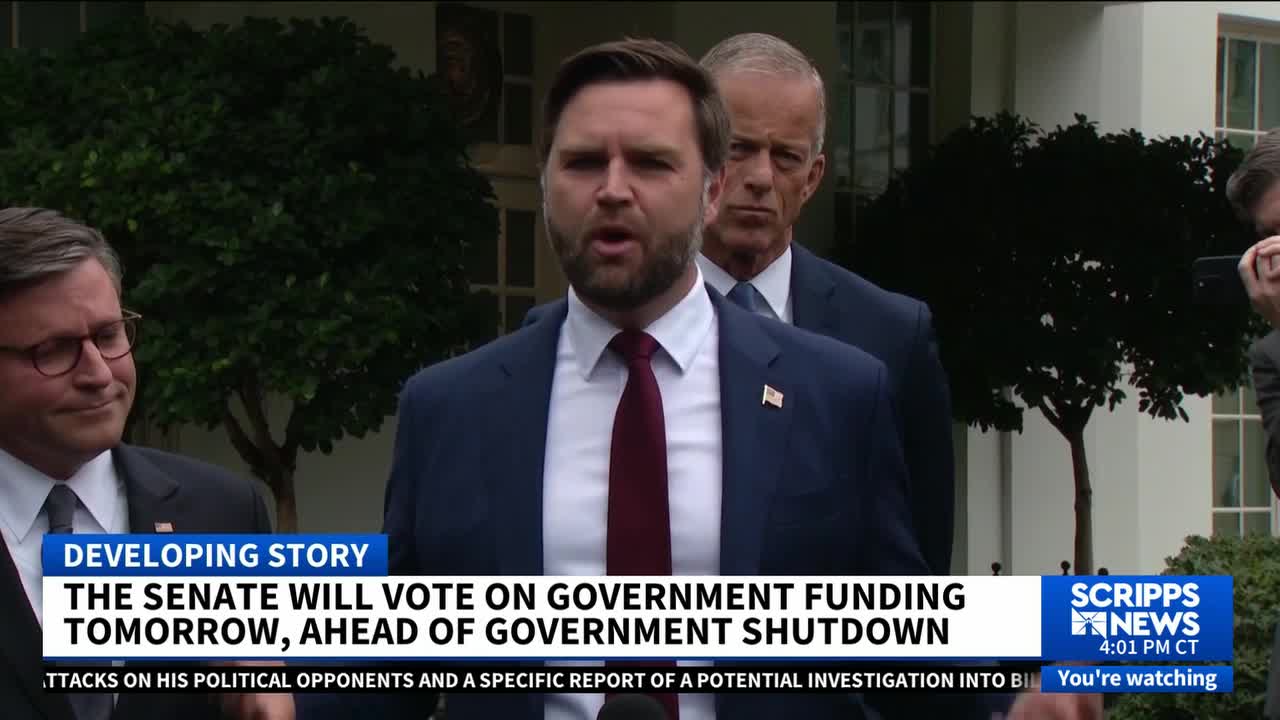The federal government is barreling toward a shutdown.
President Donald Trump and Vice President JD Vance met Monday with Republican and Democratic leaders to discuss a potential deal to keep the government open. Without an agreement, a shutdown will begin on Oct. 1.
While Republicans control the House, Senate and White House, they still need Democratic support to advance a funding measure. Republicans hold 53 Senate seats, but 60 votes are required to move the bill forward.
After the meeting, Vance told reporters, “I think we are headed into a shutdown.”
Democrats have pushed for weeks to include action on expiring Affordable Care Act subsidies in any funding measure. Republicans argue now is not the time for that discussion.
“They had some ideas that I actually thought were reasonable, and they had some ideas that the president thought were reasonable,” Vance said. “What’s not reasonable is to hold those ideas as leverage and to shut down the government unless we give you everything you want.”
But House Democratic Leader Hakeem Jeffries signaled he would not back down.
“We’re deadly serious about addressing the Republican-caused health care crisis because it’s a deadly, serious issue for the American people,” Jeffries said.
The nonpartisan Congressional Budget Office estimates that 4.2 million Americans would lose their health insurance if the current subsidies end as scheduled without congressional action.
The U.S. has not experienced a government shutdown since late 2018, nearly seven years ago. A memo from the Trump administration warns that a potential shutdown this time could lead to permanent federal job losses.
What happens if the government shuts down?
If a shutdown occurs, several government programs will continue, but others could face suspensions or closures. Social Security, Medicare and Medicaid benefits would remain uninterrupted. However, other federal offices could close, and some services could be halted.
With prime autumn leaf viewing season approaching in many regions, national parks could also see impacts. In past shutdowns, roads have been closed and services reduced.
RELATED STORY | Democrats dig in to continue subsidies for the Affordable Care Act as potential shutdown looms
One of the most significant consequences would be missed or delayed paychecks for those who work for the federal government. Federal contractors, full- and part-time federal employees, and military service members are among those affected.
Contractors may lose pay entirely, while federal employees and military personnel would receive back pay when the government reopens, as required by a 2019 law — but that provision does not apply to contractors.
The first missed paycheck for federal employees would occur on Oct. 10, according to the government’s pay schedule. The Trump administration would determine which workers are designated essential, requiring them to report to work through the shutdown.





